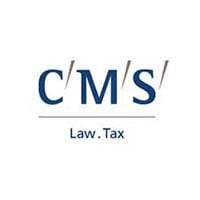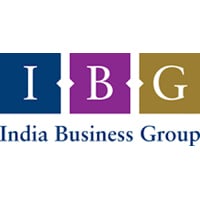
India Teams 2019

| Danaher Corporation (Diagnostics)








Danaher Corporation (Diagnostics)
Globally, the legal and compliance team at Danaher is divided by platforms (i.e. operating companies falling under the same function) and then by region. The METAI legal team falls directly under the global legal and compliance general counsel for the Diagnostics platform. Curtis Brueske is the global senior vice president, legal and general counsel for the Diagnostics Platform. Reporting to him directly is Dr Mittal, as the regional counsel for METAI. Dr Mittal’s team includes Cem Kursun in Turkey, Kanika Sachdeva in Delhi, Anvitaa Pattani in Mumbai and Mavra Mann in Dubai. Together, the team is responsible for supporting the entire METAI region for their contracts, corporate and commercial advisory work, trade compliance, whistle-blower investigations, employment advisory work, global compliance implementation, and general corporate compliance at a local level.
One of the operating companies that the legal team is handling is Cepheid, which is playing a significant role in eradicating tuberculosis across the world. Currently, the legal team is supporting the vision of Cepheid India (and also the current government’s “Make in India” campaign) to start locally manufacturing certain products in India and thus attempting to make the instruments and its consumables available at a low cost. The legal team provides its support with interpreting laws and the complex regime for manufacturing in India, decoding the processes to obtain the relevant licenses/permissions and the corresponding documentation that is required. With the implementation of GST in India, the legal team was quick to reach out to the business functions to ensure that the overhaul of the taxation regime did not affect the business and the smoothness of business continuity was not interrupted. GST rates were implemented quickly. The documentation, including but not limited to agreements, purchase orders, distributor agreements et al were revised within a short span of time to ensure that the language captured the change in the taxation regime. Further, thorough advice was furnished to the business partners to ensure that the business was run without attracting any penalty under “anti-profiteering” laws. Under the “Make in India” initiative, the legal team supported Danaher to acquire a manufacturing unit of 100,000 square feet to be occupied by different operating companies of Danaher in order to accommodate growth in business, enhance production as well build demo centres for products. Just like a M&A transaction, the legal team negotiated on several legal as well as commercial points at several junctures in the project, thus getting completely involved in the process and supported the commercial teams to fully understand the impact of certain commercials in the long run.
Upon “Make in India” being implemented, the legal team supported the business of several operating companies in its purview to understand, utilise and optimise this initiative. Changes affecting the business helped develop future strategies for the operating companies. An example of this strategy can be seen in the aforementioned lease deal wherein a facility is being set up in India to leverage the “Make in India” initiative. The introduction of the Medical Devices Rules, 2017 required several changes in the working of the regulatory team. The requirement for detailed documentation issued for registration of products and the consequent increase in time taken to process and review the data submitted to authorities had impacted local business operations. The legal team provided required support to the regulatory team in understanding the implications of the new rules. As mentioned above, the implementation of GST affected day-to-day contracts and transactions, requiring the legal and finance teams to collaborate and support business. The legal team, on short timelines, advised on the impact of GST on the business, and reviewed and revised existing documentation to effectively implement the changes required due to GST.
The company’s focus for the year is to step up from client satisfaction to “client obsession”. Accordingly, business teams are focused on being even more customer-centric than in previous years. Keeping in mind the company’s goal for this year, the legal team aims to support business needs efficiently, but in the most ethical manner. The team is targeting reduction in time taken on each transaction for a legal and compliance review and supporting M&A in the METAI region. In addition, an on-going effort is to continuously improve collaboration with the various commercial teams to work on processes, structures, SOPs and fixing any gaps or issues in commercial functions. Overall, the legal team is an integral part of all the meetings and provides high quality service, thereby reducing reliance on external law firms to a great extent. On a more specific level, the team is aiming to also build a strong practice in the METAI region for engaging healthcare professionals, given the laws applicable to healthcare professionals locally, as well as globally. This entails developing and templating various engagements and implementing a process for obtaining relevant documentation to implement local as well as global compliance norms. The team is also aiming to set up a robust process for regional implementation of countermeasures after investigating grievances raised by internal as well as external whistle-blowers.
The team culture can be described as collaborative and focused on constant improvement. Serving five different operating companies within the Diagnostics platform for a region as huge as METAI helps the team to obtain insight into a variety of issues, proactively collaborate with associates across the world, and leverage this information to optimise day-to-day work. A prime example of the team culture is seen in the global legal and compliance monthly calls. Every month, the team comes together to discuss their region’s big wins, internal strategies used in deals, exchange of best practices and recognising talent. Such practices find their genesis in Danaher Corporation’s motto of constant improvement. Implemented by Danaher leaders across the world, this promotes all actions leading to continuous growth of business at all times.